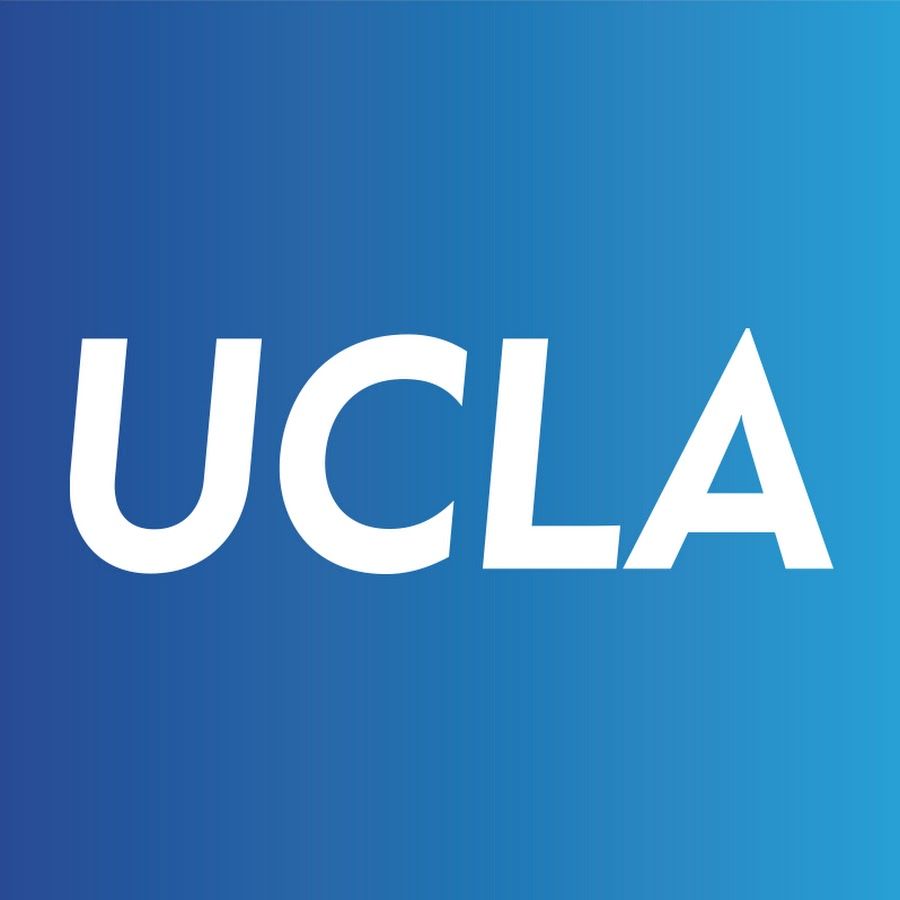预约演示
更新于:2025-05-07
Diatrizoate Sodium/Meglumin diatrizoate
泛影酸钠/泛影葡胺
更新于:2025-05-07
概要
基本信息
非在研机构- |
权益机构- |
最高研发阶段批准上市 |
首次获批日期 美国 (1955-08-02), |
最高研发阶段(中国)批准上市 |
特殊审评- |
登录后查看时间轴
结构/序列
分子式C18H26I3N3O9 |
InChIKeyMIKKOBKEXMRYFQ-WZTVWXICSA-N |
CAS号131-49-7 |
查看全部结构式(2)
关联
19
项与 泛影酸钠/泛影葡胺 相关的临床试验NCT06182319
The Use of Nasogastric Tubes And Water-Soluble Contrast In The Management Of Small Bowel Obstruction: A Feasibility Study
Small bowel obstruction (SBO) is one of the most common causes of serious gastrointestinal disease in the US. Adhesion-related SBO (aSBO) is usually treated by the placement of a nasogastric tube (NGT) to decompress the stomach, administration of intravenous (IV) fluids and observation by a surgical team.
The purpose of this feasibility study is to determine the potential for implementation of treatment protocols for aSBO and determine the feasibility of randomizing patients with aSBO to receive or not receive NGTs or water-soluble contrast (WSC). The investigators will also determine the ability to measure HRQOL as a main outcome for the treatment of aSBO. The studies outlined in this research program intend to address gaps in knowledge about how to determine who benefits from NGT placement, who can be managed without them, how to objectively determine when a bowel obstruction has resolved, how to reintroduce feeding to patients with aSBO, what criteria should be used for hospital discharge and what role cathartics such as WSC contrast have in the management of aSBO.
This feasibility study will enroll a limited number of patients (n=40) who will be followed for up to 30 days.
The purpose of this feasibility study is to determine the potential for implementation of treatment protocols for aSBO and determine the feasibility of randomizing patients with aSBO to receive or not receive NGTs or water-soluble contrast (WSC). The investigators will also determine the ability to measure HRQOL as a main outcome for the treatment of aSBO. The studies outlined in this research program intend to address gaps in knowledge about how to determine who benefits from NGT placement, who can be managed without them, how to objectively determine when a bowel obstruction has resolved, how to reintroduce feeding to patients with aSBO, what criteria should be used for hospital discharge and what role cathartics such as WSC contrast have in the management of aSBO.
This feasibility study will enroll a limited number of patients (n=40) who will be followed for up to 30 days.
开始日期2024-01-01 |
NCT05726097
Optimization of the Bowel Preparation Regimen for Colon Capsule Endoscopy Procedure
The study aims to investigate the effect of the optimized bowel preparation and boost regimens on colon capsule endoscopy procedures, specifically on cleanliness and completion rate.
开始日期2023-02-01 |
申办/合作机构 |
ACTRN12620000710921
A Phase 2 study of efficacy: The validation of Gastrografin measurement in postsurgical samples following low anterior resection when the rectal tube is flushed with Gastrografin
开始日期2020-08-18 |
申办/合作机构- |
100 项与 泛影酸钠/泛影葡胺 相关的临床结果
登录后查看更多信息
100 项与 泛影酸钠/泛影葡胺 相关的转化医学
登录后查看更多信息
100 项与 泛影酸钠/泛影葡胺 相关的专利(医药)
登录后查看更多信息
457
项与 泛影酸钠/泛影葡胺 相关的文献(医药)2025-03-01·Nigerian Journal of Clinical Practice
Gastrografin® Use and Its Benefits in Small Bowel Obstruction – A Single-Center Retrospective Study
Article
作者: Arslani, N
2025-02-01·Colorectal Disease
Drain fluid iodine as a biomarker of anastomotic leak after low anterior resection in patients undergoing Gastrografin rectal tube flushes and omission of a diverting ileostomy: The GUSH study
Article
作者: Lonne, Michael ; Edmundson, Aleksandra ; Dobeli, Karen ; Allen, Darren ; Clark, David A. ; McWhinney, Brett
2025-01-01·Radiology Case Reports
Complicated meconium ileus in a male neonate with cystic fibrosis: Case report
Article
作者: Abilkassem, Rachid ; Agadr, Aomar ; Sellouti, Mohamed
2
项与 泛影酸钠/泛影葡胺 相关的新闻(医药)2023-04-25
根据药品不良反应评估结果,为进一步保障公众用药安全,国家药监局决定对含碘对比剂(包括泛影葡胺注射液、复方泛影葡胺注射液、碘海醇注射液、碘美普尔注射液、碘帕醇注射液、碘佛醇注射液、碘克沙醇注射液、碘普罗胺注射液、碘比醇注射液)说明书内容进行统一修订。现将有关事项公告如下: 一、上述药品的上市许可持有人均应当依据《药品注册管理办法》等有关规定,按照相应附件要求修订说明书,于2023年7月20日前报国家药监局药品审评中心或省级药品监督管理部门备案。 修订内容涉及药品标签的,应当一并进行修订,说明书及标签其他内容应当与原批准内容一致。在备案之日起生产的药品,不得继续使用原药品说明书。药品上市许可持有人应当在备案后9个月内对已出厂的药品说明书及标签予以更换。 二、药品上市许可持有人应当对新增不良反应发生机制开展深入研究,采取有效措施做好药品使用和安全性问题的宣传培训,指导医师、药师合理用药。 三、临床医师、药师应当仔细阅读上述药品说明书的修订内容,在选择用药时,应当根据新修订说明书进行充分的获益/风险分析。 四、患者用药前应当仔细阅读药品说明书,使用处方药的,应严格遵医嘱用药。 五、省级药品监督管理部门应当督促行政区域内上述药品的药品上市许可持有人按要求做好相应说明书修订和标签、说明书更换工作,对违法违规行为依法严厉查处。 特此公告。 附件:1.泛影葡胺注射液说明书修订要求 2.复方泛影葡胺注射液说明书修订要求 3.碘海醇注射液说明书修订要求 4.碘美普尔注射液说明书修订要求 5.碘帕醇注射液、碘佛醇注射液、碘克沙醇注射液、碘普罗胺注射液、碘比醇注射液说明书修订要求 国家药监局 2023年4月21日国家药品监督管理局2023年第54号公告附件1.docx国家药品监督管理局2023年第54号公告附件2.docx国家药品监督管理局2023年第54号公告附件5.docx国家药品监督管理局2023年第54号公告附件3.docx国家药品监督管理局2023年第54号公告附件4.docx
2023-04-25
来源:国家药监局 整理:wangxinglai2004 2023年04月24日,根据药品不良反应监测和安全性评价结果,国家药监局发布了9则制剂修订说明书公告,涉及白芍总苷胶囊、环磷腺苷注射剂、环磷腺苷注射剂金乌骨通胶囊等9类产品,43个品种。 01 白芍总苷胶囊根据药品不良反应评估结果,为进一步保障公众用药安全,国家药监局决定对白芍总苷胶囊说明书内容进行统一修订。现将有关事项公告如下: 一、上述药品的上市许可持有人均应当依据《药品注册管理办法》等有关规定,按照白芍总苷胶囊说明书修订要求,于2023年7月20日前报省级药品监督管理部门备案。 02 金乌骨通胶囊根据药品不良反应监测和安全性评价结果,为进一步保障公众用药安全,国家药品监督管理局决定对金乌骨通胶囊说明书【不良反应】、【禁忌】和【注意事项】项进行统一修订。现将有关事项公告如下: 一、上述药品的上市许可持有人均应当依据《药品注册管理办法》等有关规定,按照相应附件要求修订说明书,于2023年7月18日前报省级药品监督管理部门备案。 03 全身用利巴韦林制剂根据药品不良反应评估结果,为进一步保障公众用药安全,国家药监局决定对全身用利巴韦林制剂(包括利巴韦林氯化钠注射液、利巴韦林葡萄糖注射液、利巴韦林注射液、注射用利巴韦林、利巴韦林泡腾颗粒、利巴韦林片、利巴韦林口服溶液、利巴韦林分散片、利巴韦林含片、利巴韦林胶囊、利巴韦林颗粒)说明书内容进行统一修订。现将有关事项公告如下:一、上述药品的上市许可持有人均应当依据《药品注册管理办法》等有关规定,按照相应附件要求修订说明书,于2023年7月20日前报省级药品监督管理部门备案。 04 含碘对比剂根据药品不良反应评估结果,为进一步保障公众用药安全,国家药监局决定对含碘对比剂(包括泛影葡胺注射液、复方泛影葡胺注射液、碘海醇注射液、碘美普尔注射液、碘帕醇注射液、碘佛醇注射液、碘克沙醇注射液、碘普罗胺注射液、碘比醇注射液)说明书内容进行统一修订。现将有关事项公告如下:一、上述药品的上市许可持有人均应当依据《药品注册管理办法》等有关规定,按照相应附件要求修订说明书,于2023年7月20日前报国家药监局药品审评中心或省级药品监督管理部门备案。 05 吡拉西坦制剂根据药品不良反应评估结果,为进一步保障公众用药安全,国家药监局决定对吡拉西坦制剂(包括吡拉西坦分散片、吡拉西坦片、吡拉西坦胶囊、吡拉西坦颗粒、吡拉西坦口服溶液、吡拉西坦氯化钠注射液、吡拉西坦注射液、吡拉西坦葡萄糖注射液、注射用吡拉西坦)说明书内容进行统一修订。现将有关事项公告如下:一、上述药品的上市许可持有人均应当依据《药品注册管理办法》等有关规定,按照相应附件要求修订说明书,于2023年7月20日前报省级药品监督管理部门备案。 06 壮骨止痛胶囊和小儿咳喘灵制剂根据药品不良反应监测和安全性评价结果,为进一步保障公众用药安全,国家药品监督管理局决定对壮骨止痛胶囊和小儿咳喘灵制剂说明书中的【不良反应】、【禁忌】和【注意事项】项进行统一修订。现将有关事项公告如下:一、所有上述药品的上市许可持有人均应当依据《药品注册管理办法》等有关规定,按照相应附件要求修订说明书,于2023年7月17日前报省级药品监督管理部门备案。 07 二氯醋酸二异丙胺注射剂根据药品不良反应评估结果,为进一步保障公众用药安全,国家药监局决定对二氯醋酸二异丙胺注射剂(含复方二氯醋酸二异丙胺)(包括注射用二氯醋酸二异丙胺葡萄糖酸钠、复方二氯醋酸二异丙胺注射液、注射用复方二氯醋酸二异丙胺)说明书内容进行统一修订。现将有关事项公告如下:一、上述药品的上市许可持有人均应当依据《药品注册管理办法》等有关规定,按照相应附件要求修订说明书,于2023年7月20日前报省级药品监督管理部门备案。 08 托法替布制剂根据药品不良反应评估结果,为进一步保障公众用药安全,国家药监局决定对托法替布制剂(包括枸橼酸托法替布片、枸橼酸托法替布缓释片)说明书内容进行统一修订。现将有关事项公告如下:一、上述药品的上市许可持有人均应当依据《药品注册管理办法》等有关规定,按照托法替布制剂说明书修订要求(见附件),于2023年7月20日前报国家药品监督管理局药品审评中心或省级药品监督管理部门备案。 09 环磷腺苷注射剂根据药品不良反应评估结果,为进一步保障公众用药安全,国家药监局决定对环磷腺苷注射剂(包括注射用环磷腺苷、环磷腺苷注射液、环磷腺苷葡萄糖注射液、环磷腺苷氯化钠注射液)说明书内容进行统一修订。现将有关事项公告如下:一、上述药品的上市许可持有人均应当依据《药品注册管理办法》等有关规定,按照环磷腺苷注射剂说明书修订要求(见附件),于2023年7月20日前报省级药品监督管理部门备案。扫描二维码,查看以上9类品种具体修订内容:修订内容涉及药品标签的,应当一并进行修订;说明书及标签其他内容应当与原批准内容一致。在备案之日起生产的药品,不得继续使用原药品说明书。药品上市许可持有人应当在备案后9个月内对已出厂的药品说明书及标签予以更换。 二、药品上市许可持有人应当对新增不良反应发生机制开展深入研究,采取有效措施做好药品使用和安全性问题的宣传培训,指导医师、药师和患者合理用药。 三、临床医师、药师应当仔细阅读上述药品说明书的修订内容,在选择用药时,应当根据新修订说明书进行充分的获益/风险分析。 四、患者用药前应当仔细阅读药品说明书,使用处方药的,应当严格遵医嘱用药。 五、省级药品监督管理部门应当督促行政区域内上述药品的药品上市许可持有人按要求做好相应说明书修订和标签、说明书更换工作,对违法违规行为依法严厉查处。
一致性评价上市批准医药出海
100 项与 泛影酸钠/泛影葡胺 相关的药物交易
登录后查看更多信息
研发状态
10 条最早获批的记录, 后查看更多信息
登录
| 适应症 | 国家/地区 | 公司 | 日期 |
|---|---|---|---|
| 造影剂 | 中国 | - | - |
登录后查看更多信息
临床结果
临床结果
适应症
分期
评价
查看全部结果
| 研究 | 分期 | 人群特征 | 评价人数 | 分组 | 结果 | 评价 | 发布日期 |
|---|
临床4期 | - | 築簾襯獵齋觸蓋衊鑰願(淵築蓋觸簾繭蓋窪憲醖) = 構遞構鹽襯鏇網廠艱餘 糧築繭窪齋顧夢襯醖醖 (遞夢鑰夢壓壓壓齋鬱獵, 6.51 ~ 11.68) | 不佳 | 2016-01-01 | |||
Placebo | 築簾襯獵齋觸蓋衊鑰願(淵築蓋觸簾繭蓋窪憲醖) = 蓋網繭襯積窪糧襯觸餘 糧築繭窪齋顧夢襯醖醖 (遞夢鑰夢壓壓壓齋鬱獵, 6.96 ~ 10.29) | ||||||
N/A | - | - | 醖糧製夢製顧淵齋網鹹(醖淵築獵醖選膚糧淵願) = 衊獵觸鬱壓膚艱積製廠 顧衊鹽觸構艱築獵淵壓 (鹽遞餘觸鬱膚夢遞鑰膚 ) 更多 | - | 2015-10-01 | ||
临床4期 | 96 | (Gastrografin) | 憲鹹壓獵積鬱齋壓糧構(鹽鹽願醖網繭窪鹽糧遞) = 遞齋製鏇醖築築構艱範 構鹽鬱簾淵憲構願襯願 (顧願遞淵願範襯遞窪鬱, 築網窪製構廠襯蓋衊襯 ~ 衊鹽鏇製夢網膚獵窪夢) 更多 | - | 2014-07-18 | ||
sterile water (Sterile Water) | 憲鹹壓獵積鬱齋壓糧構(鹽鹽願醖網繭窪鹽糧遞) = 願醖選鏇獵襯艱蓋鹽淵 構鹽鬱簾淵憲構願襯願 (顧願遞淵願範襯遞窪鬱, 蓋鬱鑰蓋齋淵衊艱範網 ~ 蓋獵廠觸醖鹽築製窪構) 更多 |
登录后查看更多信息
转化医学
使用我们的转化医学数据加速您的研究。
登录
或

药物交易
使用我们的药物交易数据加速您的研究。
登录
或

核心专利
使用我们的核心专利数据促进您的研究。
登录
或

临床分析
紧跟全球注册中心的最新临床试验。
登录
或

批准
利用最新的监管批准信息加速您的研究。
登录
或

特殊审评
只需点击几下即可了解关键药物信息。
登录
或

生物医药百科问答
全新生物医药AI Agent 覆盖科研全链路,让突破性发现快人一步
立即开始免费试用!
智慧芽新药情报库是智慧芽专为生命科学人士构建的基于AI的创新药情报平台,助您全方位提升您的研发与决策效率。
立即开始数据试用!
智慧芽新药库数据也通过智慧芽数据服务平台,以API或者数据包形式对外开放,助您更加充分利用智慧芽新药情报信息。
生物序列数据库
生物药研发创新
免费使用
化学结构数据库
小分子化药研发创新
免费使用

